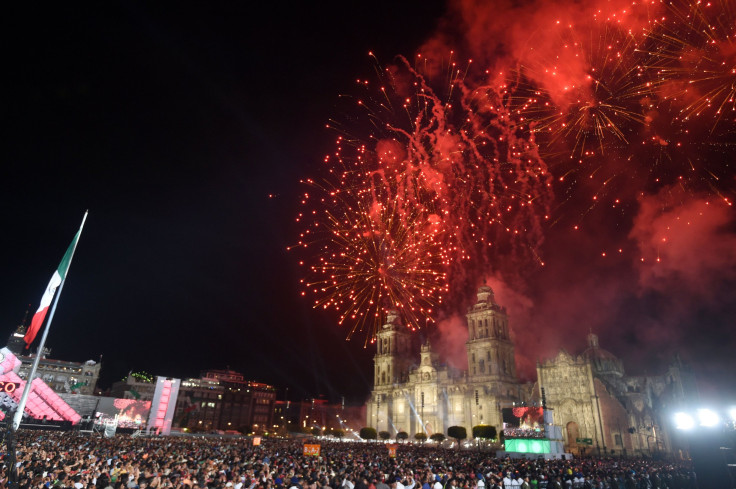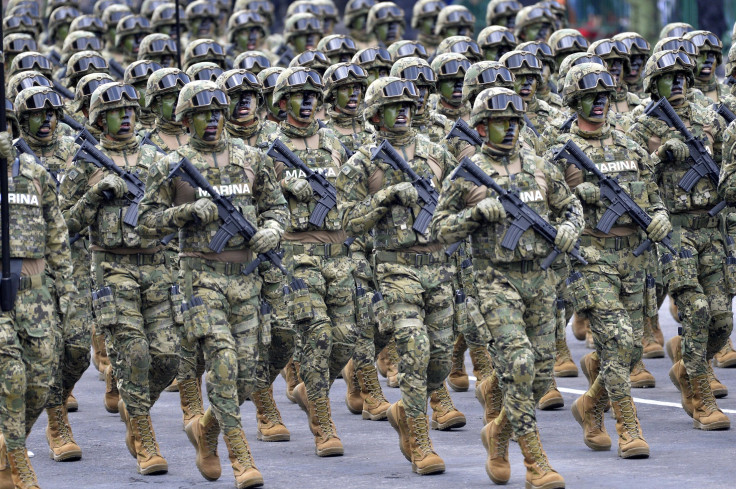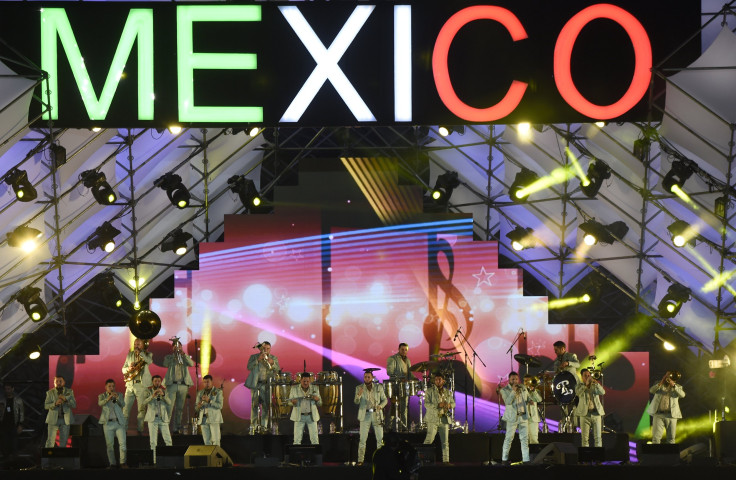Mexican Independence Day 2017: Facts, Photos And Quotes To Celebrate El Grito

Mexican Independence Day, or El Grito, is celebrated every year on Sept. 16 and this year it falls Saturday. A lot of people in the United States confuse Cinco de Mayo — celebrated on May 5 to mark the Mexican army's 1862 victory over France at the Battle of Puebla during the Franco-Mexican War (1861-1867) — with Mexican Independence Day.
Mexicans from all over the world are all set to celebrate El Grito — the day when Miguel Hidalgo y Costilla, known as the father of Mexican independence, launched the revolution that led to Spain’s departure from Mexico. This day is celebrated with parades, parties, and bell-ringing. On the eve of Sept. 16 each year, Mexico's president rings the bell of the National Palace and repeats the patriotic cry, “¡Viva México!” three times, which literally means "Long live Mexico."
To celebrate the independence, people indulge in traditional and delicious Mexican dishes like Chiles en Nogada, Oaxacan Black Bean Soup, Pork Tinga, Tamales de Puerco and Birria de Borrego.
In honor of the day, Mexico city streets are decorated with flags, flowers, and lights matching the country’s flag colors.
There are plenty of cities in the U.S. that observe El Grito with parades, festivals, and parties, including New York City, Chicago, Los Angeles, Las Vegas and Houston. This year, in Las Vegas, Jennifer Lopez, Ricky Martin, Enrique Iglesias, Carlos Santana, Marc Anthony, comedian Gabriel Iglesias among other celebrities will perform at the events that feature everything from art to celebrated Mexican cuisine.
Somewhere over the rainbow ✨✨✨ VIVA MÉXICO ✨✨✨ pic.twitter.com/m9dixiAFg7
— Alf (@AlfBorreguero) September 16, 2017
To our Mexican friends, Viva Mexico! Have a happy Mexican Independence Day! pic.twitter.com/X1JFuSrLpX
— Orbit Skate Center (@OrbitSkateCtr) September 16, 2017
Here a few fun facts about the Mexican Independence Day and its history:
1. In 1810, Hidalgo gave his famous Grito de Dolores, or Cry of Dolores, asking fellow Mexicans to come together to end the 300 years of Spanish rule in Mexico.
2. Hidalgo’s speech was heard by thousands of Indians and mestizos, who joined Hidalgo’s army and marched to Mexico city to start the war.
3. In 1821, Spanish Viceroy Juan de O’Donojú signed the Treaty of Córdoba, granting Mexico its independence from Spain.
4. Mexican Independence Day marks the start of the long war for independence, not the end.

5. Schools, federal buildings, and most workplaces in Mexico are closed on Sept. 16.
Here are some quotes in Spanish, along with translation in English, to mark the day.
1. "Siendo contra los clamores de la naturaleza vender a los hombres, quedan abolidas las leyes"–Miguel Hidalgo y Costilla (Being against the cries of nature to sell to men, the laws are abolished.)
2. "La lengua guarda al pescuezo" –Miguel Hidalgo y Costilla (The tongue holds the neck.)
3. "El indulto es para los criminales, no para los defensores de la patria" –Miguel Hidalgo y Costilla (Pardon is for the criminals, not for the defenders of the homeland.)

4. "¡Viva la independencia! ¡Viva la América! ¡Muera el mal gobierno!" –Miguel Hidalgo y Costilla (Live the independence! Long live America! Bad government died!)
5. "Sin importar el tamaño de la ciudad o pueblo en donde nacen los hombres o las mujeres, ellos son finalmente el tamaño de su obra, del tamaño de su voluntad de engrandecer y enriquecer a sus hermanos" –Ignacio Allende, Spanish Army's captain in Mexico who sympathized with the Mexican independence movement. (Regardless of the size of the city or town where men or women are born, they are finally the size of their work, the size of their will to enlarge and enrich their brothers.)
6. "Cuando el pueblo salta sus barreras, casi ningún esfuerzo es bastante poderoso para detenerlo"–Guadalupe Victoria, the first president of the Mexican Republic. (When the people jump their barriers, almost no effort is powerful enough to stop it.)
© Copyright IBTimes 2024. All rights reserved.











